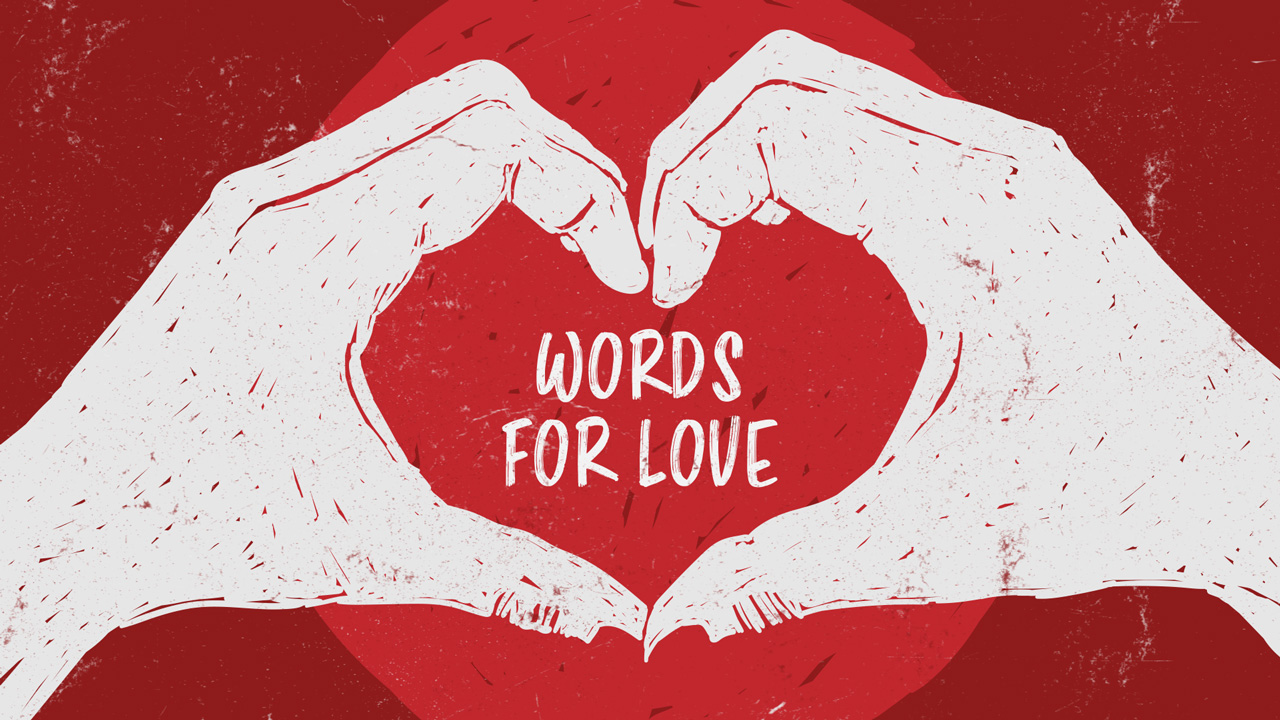28 Synonyms for Love from Around the World (+ Literal Translations into English)
There are so many different ways to say “I love you” and to share the love around the world!
At Fluent in 3 Months, we’re quite fond of this aspect of languages. In fact, this is not the first article we write on the topic. Looking for terms of endearment or cute nicknames? Or maybe you’re wondering how to say “my love” in different languages. Try looking up “I love you” in our search bar!
The world needs more love anyway, so we might as well spread it. Should we jump into it?
Let’s get this mission started!
Table of contents
- 1. Spanish Words for Love
- 2. Japanese Words for Love
- 恋 (Koi)
- 3. Arabic Words for Love
- حب (Habb)
- 4. Greek Words for Love
- 5. Love in American Sign Language
- 6. Tamil Words for Love
- 7. Irish Words for Love
- 8. Sanskrit Words for Love
- 9. Love in the Klingon Language
- Bonus: Fun Fact About Love Worldwide
- Time to Spread the Love
Here’s the companion videos to this article:
1. Spanish Words for Love
While Spanish really only has one noun for love (amor), when it comes to the verb “to love”, there are three different Spanish words to choose from. These depend on context, of course.
Querer
The word querer is the general term to use when you love a person, including friends, family or romantic partners. It also translates into English as “to want”, but don’t let that confuse you. “Te quiero” is not the equivalent of the decidedly un-romantic English sentence “I want you”.
It makes more sense to look at the word querer as a homonym having two distinct meanings in Spanish: “love” and “want”. Just like the word “love” in English can also refer to a score of zero in tennis, which has nothing to do with the feeling of love.
Amar
Amar is a much stronger version of querer, and is only used in a romantic way.
Encantar
You might recognize the origin of the English word “enchant” in the Spanish verb encantar. This word is most similar to the English word “love” when referring to activities. It indicates a strong like.
If you’d say “I love studying Spanish” in English, then use encantar for the Spanish translation: “Me encanta estudiar el español.”
2. Japanese Words for Love
Japanese is a highly nuanced language. This goes for a concept like “love” as well. Though luckily there aren’t as many words for love as there are for “you”!
There are two main words for the concept of love, but the usages of each are highly dependent on a variety of cultural factors.
愛 (Ai)
Depending on the context, 愛 can be used to refer to several types of love, including friendships, family, and love of things or activities.
It’s used as the base for constructing many different love-related words, such as 愛犬家 (aikenka; “a dog lover”), 母性愛 (boseiai; “maternal love”) or 博愛 (hakuai; “philanthropy”).
恋 (Koi)
This word usually implies physical or romantic love, though in certain contexts, it can imply a more “selfish” type of love. It’s used in the construction of such romance-related words as 恋人 (koibito; “a boyfriend/girlfriend”), 恋敵 (koigataki; “a rival in love”) or 初恋 (hatsukoi; “first love”).
3. Arabic Words for Love
Another profoundly rich and varied language, Arabic has at least eleven different words for love.
These range from general terms similar to English, to very specific terms for certain phases of love that you might go through while falling deeply in love with someone.
Here are a few key words from that spectrum:
حب (Habb)
This is the general word for “love”. It can describe romantic love, or love for family, activities or objects. You might recognize it as the root of the Arabic terms of endearment habib (for men) and habibi (for women).
عشق (‘Ishq)
When you’re in the “honeymoon phase” of love and are feeling a passionate love for your partner, ’ishq is the word to use. It’s the feeling you have when the initial love you felt for someone has now taken root.
In fact, the origin of this word comes from the Arabic word for “vine”. This conveys the impression of the love having been planted in your heart so it can grow into passion.
شغف (Shaghaf)
This word is reserved for an intensely burning love or lust. You can use it to describe being madly in love with someone.
حنان (Hanaan)
Hanaan has several meanings, including compassion, tenderness, and loving care. It’s a common Arabic first name for girls.
4. Greek Words for Love
Greek famously has four main words for love:
Έρωτας (Erotas) (Known as Έρως (Eros) in Ancient Greek)
This refers only to romantic love or courtship. You’ll recognize it as the root of the English word erotic.
Aγάπη (Agape)
In Ancient Greek, this word described a spiritual or charitable love, such as the love that God has for man. This word is used often in the Greek translation of the Bible.
In modern Greek, its definition is more broad, and can be used to express love for family or a romantic partner.
Φιλία (Philia)
The general word for non-romantic love between equals, such as between friends and family, or love for activities.
You’ll recognize this word as a suffix of several English words, such as “cinephile” (film lover) or “francophile” (French language lover). This word isn’t used as often today as it was in Ancient Greek.
Στοργή (Storgé)
This is the word used to describe the natural affection that exists between parents and children. This word is also more rare today than it was in ancient times
5. Love in American Sign Language
ASL is a language unto itself. It doesn’t just translate words directly from English into signs, as many people think. ASL grammar is also very different from English grammar.
ASL has two ways to say the English word “love” (video credits: Signing Savvy: ASL videos and learning resources):
1. Love for actions or objects (e.g. “I love learning languages”). This word is signed by kissing the back of your fist:
2. Love for living beings (e.g. “I love my mother/spouse/dog”). This word is signed by crossing your arms over your chest and “hugging” yourself:
6. Tamil Words for Love
Tamil is the language of Sri Lanka and two states in India. It’s also one of the four official languages of Singapore. Its roots go back thousands of years, giving it a rich history in literature and poetry.
According to some sources, there are dozens of different words in Tamil to express the concept of love. Here are a few words:
அன்பு (Anpu)
This is the general term for love. It can describe romantic love, affection, friendship or devotion.
காதல் (Katl)
Katl is reserved for expressing romantic love.
ஆசை (Achai)
This is the love you feel when you long for someone.
பாசம் (Pachm)
The feeling of deeply connected love. You can use this word to describe parental love, for example.
கைக்கிளை (Kaikkilai)
This word probably doesn’t have an equivalent in very many languages. It’s used to express a romantic love that isn’t reciprocated by the other person. It’s a great example of what a rich, nuanced language Tamil is.
7. Irish Words for Love
Irish is the first official language of my home country. People are often surprised to learn that it’s quite different from English, being a Celtic language rather than Germanic.
Here are a few of the numerous Irish words to express love:
Grá
This is the all-purpose word for love, which can be used in generally the same way as the English word “love” (for loving people, places, romantic partners, etc.).
Cion
Cion roughly translates as “affection”, such as the love you might have for a child.
Searc
This is used for describing romantic love or “true love”.
Cumann
Use cumann when you want to express the love and companionship that exists between friends.
8. Sanskrit Words for Love
Sanskrit is a classical language that has influenced modern South and Southeast Asian languages at least as much as Greek and Latin have influenced modern European languages. This language has an astounding 96 words for love.
Here is just a small sampling of the vast spectrum of Sanskrit words for love.
स्नेह (Sneha)
Maternal love or affection.
काम (Kama)
Erotic or amorous love. You might recognize this word from the title of the famous ancient text, the Kama Sutra.
अनुरक्ति (Anurakti)
Passionate love or attachment.
रति (Rati)
This word originally meant to enjoy or delight in something or someone. The meaning has evolved to imply a physical desire or love.
प्रिय (Priya)
Meaning “darling” or “beloved”, Priya is a common given name for girls in India and Nepal.
9. Love in the Klingon Language
There’s not much to be said here. The fictional Klingon language, from the Star Trek universe, reportedly has no words for love. Close translations include “unhate” and “honour”. What do you suppose this says about that culture?
Bonus: Fun Fact About Love Worldwide
There are more words for “love” than there are languages in the world. Let me explain with an example:
The Japanese language has dozens of ways to say “you”. There are polite forms, very polite forms, impolite forms and downright rude forms.
Do all these different words for “you” exist just to annoy foreigners learning Japanese? Of course not. They’re integral to Japanese culture, and they give foreigners valuable insight into an intangible aspect of that culture, namely that status and relationships are very important in Japan.
Likewise, there are many languages that have several different ways to express the concept of love. What do you suppose this says about those cultures?
English has a few different words for different kinds of love, including “fondness”, “affection”, and “infatuation”. But when it comes to the word “love” itself, this one word can express all of these concepts and more.
Consider the following English sentences:
- I love my husband/wife
- I love my mother
- I love my best friend
- I love learning languages
- I love Mondays
No matter what kind of love we’re talking about in English, we can use one single word for it: “love”. This is as baffling to some students of English as all the different forms of “you” are to people learning Japanese.
Why should the concept of romantic love (“I love my husband/wife”) use the same word as parental love (“I love my mother”), or love of an object?
In English, the word “love” has become diluted so that it can be used in place of “like”. In some languages, the difference is very important. Is the English language limited by not putting much value on this difference? Monolingual English speakers would probably say no, but that’s because they don’t have anything to compare it to.
The truth is, the more languages you learn, the more you see the benefit of having various ways to refer to “love”.
Let’s take a look at how some languages express the idea of love. Some languages have just one or two words, like English. Others have many more, and they’re as integral to the culture as all the different Japanese words for “you” are to Japanese culture.
Time to Spread the Love
This is just a tiny sampling of all the different ways there are in the world to express the complex emotions associated with love.
If you know of other languages that have multiple ways to describe different kinds of love, or languages whose nuances for love can’t be directly translated into English, I’d love to hear about them 😉
Let me know on Instagram (@irishpolyglot), TikTok (@irishpolyglot), or Twitter (@irishpolyglot) what words you will use!






Social